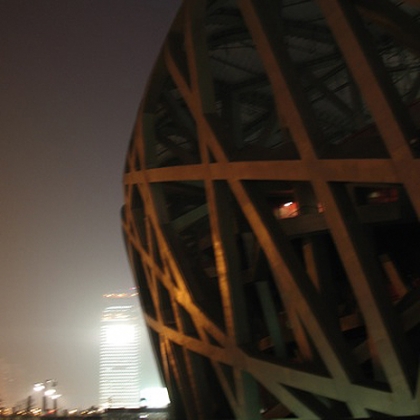China has fascinated me since my youth, and yet when the invitation came to give a speech in Beijing on Sustainability, I felt some trepidation. As the fossil-fueled economic might of China grows and its population achieves increasing affluence, our fear in the West increases – we worry about contaminated products and worker safety, a new coal plant a week and pollution drifting across the Pacific to the West Coast. We worry about escalating costs due to increasing competition for fossil fuels and industrial materials such as cement and steel. Having just returned from Beijing, I am greatly encouraged – and although we still have much to fear, that fear should be equally placed (and perhaps more so) with ourselves.
What encourages me (besides the great reception of the Chinese people themselves) is the conscious messaging of the Communist Party of China (CPC) and the very nature of this 5,000-year-old civilization. Entering Beijing, one is immediately struck by messaging to achieve a ‘Harmonious Society.’ With origins in Taoism, Confucianism and Buddhism, this messaging has evolved over the last decade from a buzzword into a paradigm. The China Business Weekly (Oct. 20-26, 2008) had a two-page spread on Energy/Environment in which they say, “(Chinese President Hu Jintao) emphasizes the establishment of a harmonious socialist society, which features democracy and the rule of law, equity and justice, honesty and fraternity, vigor and vitality, stability and order, and harmony between man and nature.”*
In addition, the CPC has implemented a key strategic initiative with the Scientific Outlook on Development that has reduced emissions of sulfur dioxide by 3.96% and chemical oxygen demand (a measure of water pollution) by 2.48% compared to the same period last year. Additionally, the Scientific Outlook for Development has contributed a national goal to China’s 11th Five Year Plan to cut energy consumption by up to 20% per unit of GDP and reduce major pollutants by up to 10% by 2010.
But what really encourages me are statements made by President Hu during his keynote address last October to the 17th National Congress. According to the China Business Weekly, “Hu said construction of an ecological civilization is one of the requirements for China to build an affluent society. Hu noted that building awareness of resource conservation and an environmentally friendly society should be a priority ahead of industrialization and modernization, starting from every department, and even every family.”
You might argue that this is simply rhetoric from politicians (although not our politicians), but I believe it is conscious messaging from the leadership of China that builds on a foundation of 5,000 years of Chinese thought about the harmonious society and harmony between man and nature. Although our current political rhetoric is about change, it might be that China is actually changing for the betterment of the whole world and we have been unable or unwilling to see it. For me personally, the notion of China creating an ecological civilization is in the bones of the Chinese people – as an architect I can see it in their ancient civilization and landscape designs. It left me with a whole new appreciation of their Olympic slogan, “One World, One Dream.”
I believe the time has come to set aside our differences about who should sign on to the Kyoto Protocol when, and recognize that we both need to de-carbonize our economies. Let’s do it together and help the whole world create an ecological civilization. One World, One Dream.
* -- Emphasis is my addition.
Image credit: Ken Hall

